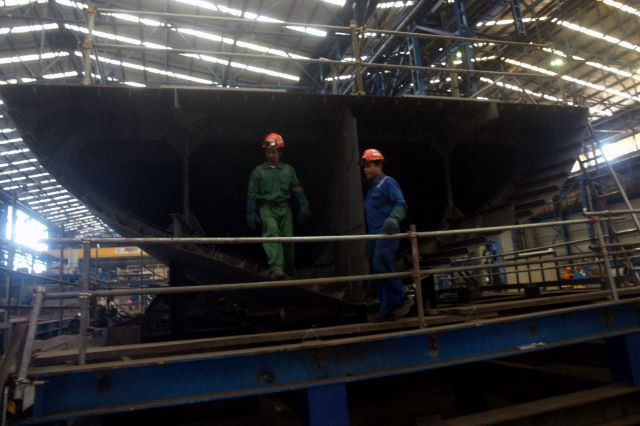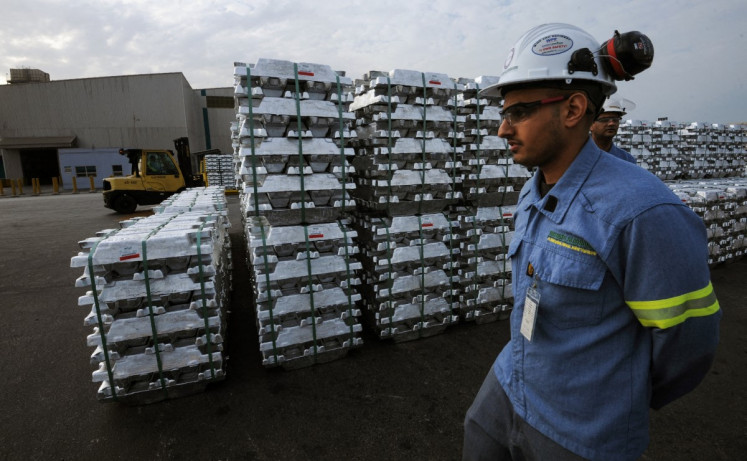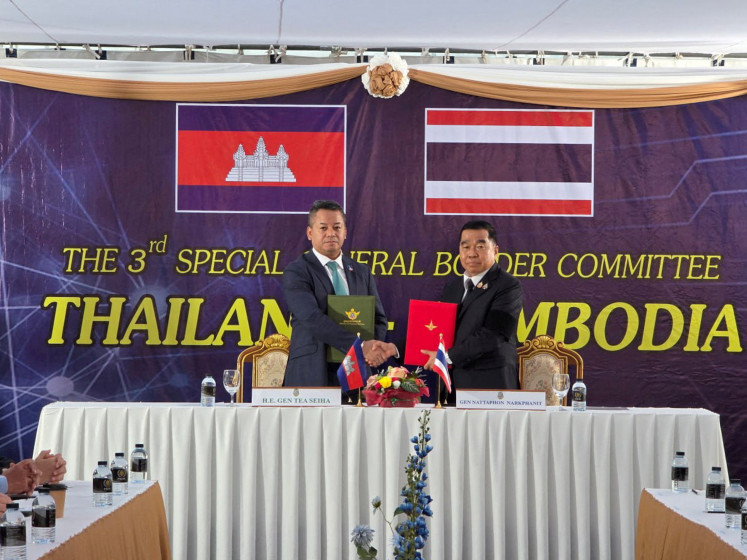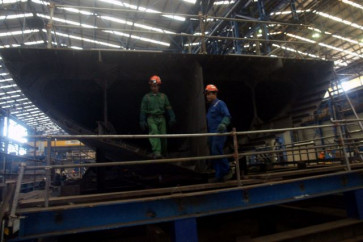Popular Reads
Top Results
Can't find what you're looking for?
View all search resultsPopular Reads
Top Results
Can't find what you're looking for?
View all search resultsHow Indonesian defense industry can join global supply chain
It is fair to say that at this moment, only SOEs have the ability to join the global supply chain, especially due to the government’s support, including funding through state capital injections.
Change text size
Gift Premium Articles
to Anyone
D
uring the 2023 International Maritime and Defense Exhibition (IMDEX) held at Changi Naval Base, Singapore, on May 3-5, the Navy deployed three warships produced by state-owned shipbuilder, PT PAL Indonesia, namely hospital ship KRI Radjiman Wedyodiningrat, 60-meter fast missile boat KRI Halasan and frigate KRI I Gusti Ngurah Rai.
In fact, PAL senior management, including president director Kaharuddin Djenod, and Navy chief of staff Adm. Muhammad Ali were present, signaling the important nature of the event.
PAL chief marketing officer Willgo Zainar said IMDEX provided the company with opportunities to promote its products, as well as to explore the latest maritime technology to increase its capabilities. Ali, who briefly attended the event, emphasized the need for the Navy to use locally made products to achieve self-reliance in fulfilling operational requirements, as well as to support the domestic defense industry’s bid to become part of the global supply chain.
It is important to note that to reach the goal, Indonesian defense companies already have strong capital, especially supporting regulations, such as Law No.16/2012 on the defense industry, as well as the government’s commitment to defense investment as part of the Indonesian Military’s (TNI) long-term modernization plan.
The political will to redevelop Indonesia’s strategic industry has several times been expressed by President Joko “Jokowi” Widodo too, most recently during the launch of the state-owned defense industry holding, Defend ID, in April 2022. At that time the President instructed the national defense industry to increase its local content rate to 50 percent through mastery of key technologies. The President also urged state-owned enterprises (SOEs) to join the world’s top-50 defense companies by 2024.
From the industrial side, it is fair to say that at this moment, only SOEs stand an opportunity of joining the global supply chain, especially due to the government’s support, including funding through state capital injections. As part of the state assets expected to generate revenues for the national economy, SOEs hold important positions within defense-procurement projects, as regulated by Law No.16/2012, through their status as the main equipment and main component industries in the first and second tiers, which allows them to take advantage of offset and/or transfer of technology (ToT) programs. In parallel, recipients also bear the responsibility of ensuring the saliency of the offset, as well as to multiply the value (by a 10 percent increase every five years) as required by the law.
However, to realize the goal of partaking in the global supply chain, an important aspect that the government should consider is business growth, which can be obtained not only through the increase in sales of existing products, but also by pursuing opportunities in accessing new technologies.



















